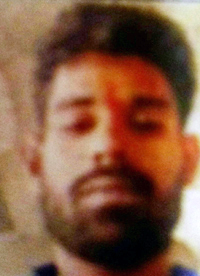New Delhi, Jan 27: Non-Muslim refugees from Pakistan, Bangladesh and Afghanistan will have to provide proofs of their religious beliefs while applying for Indian citizenship under the controversial Citizenship Amendment Bill (CAA), officials said on Monday.
The applicants belonging to Hindu, Sikh, Christian, Buddhist, Jain or Parsi faiths will also have to furnish documents to prove that they entered India on or before December 31, 2014.
Those who will seek Indian citizenship under the CAA will have to provide proofs of their religious beliefs and this will be mentioned in the rules to be issued under the CAA, a government official said.
According to the CAA, members of Hindu, Sikh, Buddhist, Jain, Parsi and Christian communities who have come from Pakistan, Bangladesh and Afghanistan till December 31, 2014, due to religious persecution there will not be treated as illegal immigrants and will be given Indian citizenship.
The central government is also likely to give a relatively smaller window of just three months to those who want to apply for Indian citizenship in Assam under the CAA, another official said.
Some Assam-specific provisions are expected to be incorporated in the rules to be issued for the implementation of the CAA.
Assam chief minister Sarbananda Sonowal and his finance minister Himanta Biswa Sarma had made a request about a fortnight ago to keep a limited period window for applying under the CAA and also incorporate some other Assam-specific provisions in the CAA rules.
The move comes in view of continuing protests against the CAA in Assam that have been going on since the legislation was passed by Parliament in December last year.
There has been a growing feeling among the indigenous people of Assam that the newly enacted legislation will hurt their interests politically, culturally as well as socially.
The Assam Accord provides for detection and deportation of all illegal immigrants who have entered the country after 1971 and are living in the state, irrespective of their religion.
The protesters in Assam say that the CAA violates the provisions of the Assam Accord.
 This follows a report submitted by Shantharam, Police Inspector, Mangaluru North PS to the Mangaluru City Police commissioner M Chandra Sekhar.
This follows a report submitted by Shantharam, Police Inspector, Mangaluru North PS to the Mangaluru City Police commissioner M Chandra Sekhar.




Comments
Looks like Cheddi officers who protect such criminals are losing their hold in the dept. Thats GOOD for the Society and the people.
Does it take so many (7 and 1/2) years for justice to be delivered.Because of this so many people are resorting to such acts.They feel that they will get away with criminal acts.
Sincere gratitude towards Police Inspector, Shantharam for his service to the city such criminals should be punished for peace in the society. Police are the major stake holders of peace without them peace is not possible.
Add new comment